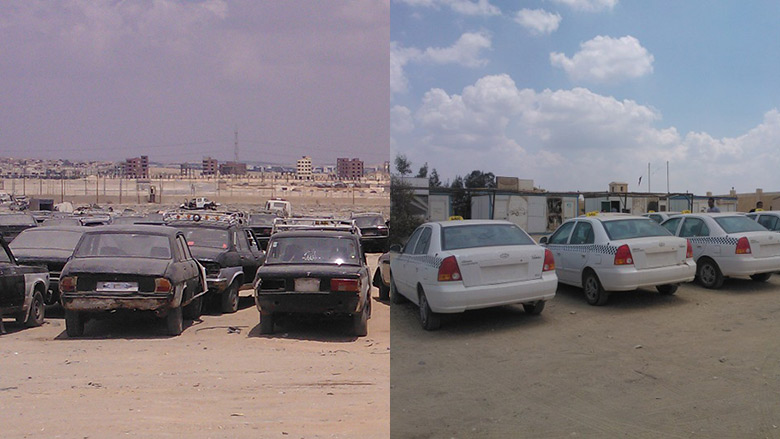DESCRIPTION
The Egyptian mass transport fleet is aging; in fact, the average taxi in Egypt had until recently been on the road for 32 years. Aging fleets are prone to frequent breakdowns and high emissions because older vehicles are typically not equipped with modern catalytic converters.
The Egypt Vehicle Scrapping and Recycling Program of Activities (PoA) is part of a national program whereby owners of taxis, buses, microbuses, and trailer trucks voluntarily surrender their vehicles for managed scrapping and recycling in exchange for financial incentives that may be used toward the purchase of new vehicles. The scrapping and recycling program is currently limited to taxi vehicles in the Greater Cairo Region, but may expand to other regions and vehicle types.
The eligible vehicles are those covered by Traffic Law #121 (enacted in 2008), which states that owners of mass transport vehicles older than 20 years are not eligible for new operating licenses or license renewals. The law was designed to accelerate fleet replacement in order to improve air quality (including the reduction of greenhouse gas emissions) and to reduce the number of traffic accidents involving older vehicles.
CONTEXT
Because Traffic Law #121 does not specify how eligible vehicles are to be disposed of, owners can choose to sell their vehicles in regions where the law does not apply; to convert their vehicles to private use (private vehicles are not affected by the Law); or to dismantle their vehicles and sell the engines for use in other vehicles. Without a scrapping and recycling program component that encourages older vehicles to be taken off the road and ensures that vehicle components are permanently (and safely) disposed of, the law would not have its intended impact on safety, air quality, and greenhouse gas mitigation.
RESULTS & ACHIEVEMENTS
- The equivalent of over 130,000 tons of carbon dioxide were avoided in 2013 and 2014 as a result of the program.
- A total of 40,689 new taxi vehicles have replaced aging taxis in Cairo alone, some of which were over 50 years old.
- The new taxi fleet reduces emissions of other airborne pollutants (e.g., carbon monoxide, nitrogen oxides) and contributes to increased traffic safety across Egypt.
